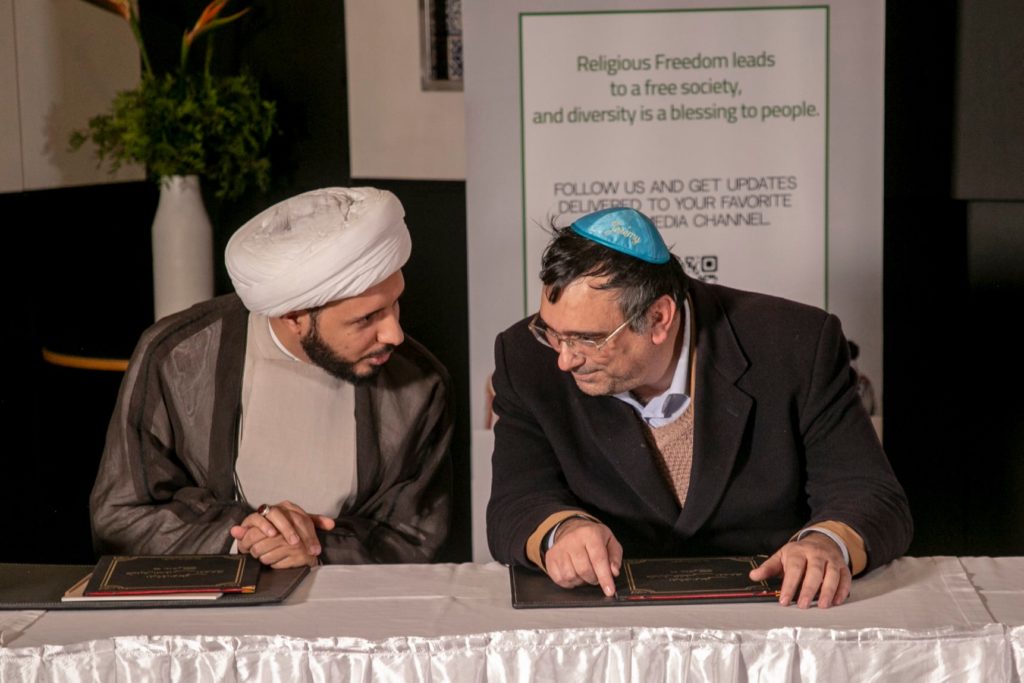On January 26, 2022, the Attalaki organisation facilitated the signing of the National Charter for Peaceful Coexistence, an initiative aimed at fostering dialogue, understanding and cooperation among the country’s diverse communities.
The charter represents the culmination of several years of dedicated dialogue and collaboration. It serves as a platform to encourage mutual respect and recognition of diversity as a source of strength rather than division. By bringing together representatives of different faiths and cultural backgrounds, including a Sufi Imam, a Jewish Rabbi, two Evangelical Christian Pastors, a Shia Imam and a Baha’i religious leader, the charter emphasises the importance of maintaining ongoing conversations and building bridges across communities.
The initiative highlights that diversity in belief and practice can contribute to social cohesion when approached through dialogue and cooperation, reinforcing the idea that differences can inspire constructive engagement for the benefit of society as a whole.
In line with ongoing efforts to strengthen social cohesion and mutual understanding in Tunisia, the charter complements broader national initiatives aimed at fostering harmony, continuity, and constructive engagement across communities. It reflects a shared commitment to unity and collective responsibility, while valuing the rich diversity present within Tunisian society.
Through this charter, communities are encouraged to engage in continuous exchange, fostering understanding and trust across cultural and religious lines. It reflects a collective commitment to nurturing a society in which diverse traditions coexist harmoniously and where dialogue is prioritised as a tool for collaboration and national unity.
The National Charter for Peaceful Coexistence underscores the vital role of civil society in bringing people together and creating a culture of cooperation. It demonstrates that sustainable social harmony is achievable when efforts are directed toward inclusion, understanding and partnership, ultimately contributing to a stronger, more cohesive society.



